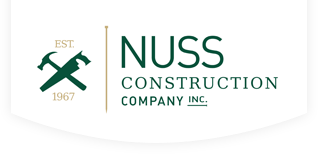Investing in home improvements can enhance your comfort, increase your property’s value, and sometimes provide valuable tax benefits. Understanding which improvements qualify for deductions or credits can help you maximize financial returns while upgrading your home. Here’s a guide to help you navigate the process and make the most of your investments.

Know Which Improvements Qualify
Not all home improvements are tax-deductible. Generally, improvements that add value, prolong the life of your home, or adapt your property for new uses may qualify. Examples include installing energy-efficient windows, adding solar panels, or upgrading plumbing and electrical systems. Routine maintenance and repairs, however, are usually not deductible. Consulting a tax professional can help you identify improvements that qualify for credits or deductions.
Track Your Expenses Carefully
Keeping detailed records of all home improvement costs is essential for maximizing tax benefits. Save receipts, invoices, and contracts for materials and labor. Note the date of purchase and the purpose of each improvement. Detailed documentation ensures you can substantiate your deductions if needed and makes tax filing easier.
Focus on Energy-Efficient Upgrades
Energy-efficient improvements often provide the most substantial tax incentives. Upgrades such as solar panels, energy-efficient windows, HVAC systems, or insulation may qualify for federal tax credits. These credits directly reduce the amount of tax owed, making them more valuable than deductions. Leveraging home improvement tax deductions for energy-efficient upgrades can significantly offset the costs of your project.
Consider Medical or Accessibility Improvements
Certain home improvements made for medical purposes may also be deductible. This includes modifications such as wheelchair ramps, widened doorways, or bathroom adaptations for accessibility. These expenses can qualify as medical deductions if prescribed by a healthcare professional and primarily benefit a person with a medical need.
Understand the Timing and Tax Implications
Tax benefits for home improvements are generally realized in the year the project is completed and paid for. It’s important to coordinate your projects with your tax planning to ensure maximum benefit. Additionally, some improvements may affect the cost basis of your home, potentially reducing taxable gains when you sell.
Maximize Your Home Improvement Benefits Today
If you are planning home renovations and want to make the most of available tax benefits, Nuss Construction Company can help guide your projects for maximum value. Call us at (856) 988-9982 or fill out our online form to discuss your home improvement plans in Marlton, NJ. Let us help you upgrade your home efficiently and strategically.





